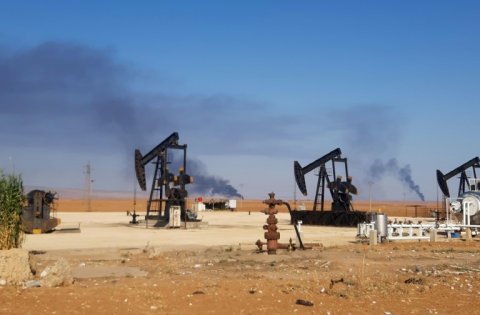Showing 1 - 10 of 86
SEC charts sustainable roadmap
Business, Nuntawun Polkuamdee, Published on 08/12/2025
» The Securities and Exchange Commission (SEC) is intensifying efforts to align the country's capital market with global sustainability standards, positioning environmental, social and governance (ESG) as a central pillar of its three-year strategic plan.
Putting up a brave front in Brazil
News, Published on 01/12/2025
» On the sidelines of the COP30 in Belém, Brazil, Thai activist Baramee Chaiyarat says he was there to help give voice to those typically underrepresented at such a high-level summit.
AI boom is turning Malaysia’s palm oil estates into data centres
Bloomberg News, Published on 19/11/2025
» KUALA LUMPUR — Malaysia’s palm oil giants, long-blamed for razing rainforests, fuelling toxic haze and driving orangutans to the brink of extinction, are recasting themselves as unlikely champions in a different, potentially greener race: the quest to lure the world’s artificial intelligence (AI) data centres to the Southeast Asian country.
Oil and gas firms resist pressure to end ‘greenwashing’
AFP, Published on 23/10/2025
» PARIS - Oil and gas companies have increasingly come under legal attack over their role in contributing to global warming, yet unlike other industries that face tougher regulations they have not abandoned their climate marketing claims.
Overshooting 1.5C climate target 'inevitable': UN chief
AFP, Published on 23/10/2025
» GENEVA - UN Secretary-General Antonio Guterres said Wednesday it was now clear that efforts to cap global warming at 1.5 Celsius above pre-industrial levels would fail in the short term.
Thai developers bet on sustainable homes
Kanana Katharangsiporn, Published on 13/10/2025
» As climate concerns mount and urban living intensifies, Thailand's property sector is turning to sustainability as both a necessity and a market opportunity.
Thailand draws up historic first climate change bill
News, Apinya Wipatayotin, Published on 20/08/2025
» Thailand's first climate change bill is expected to be submitted to parliament by the end of this year, with the establishment of a national climate fund as a central mechanism to support the country's transition from a fossil-fuel economy to a low-carbon society, according to the Department of Climate Change and Environment.
Emissions data obligation on the horizon
Business, Nuntawun Polkuamdee, Published on 24/07/2025
» Companies listed on the SET50 Index will be subject to greenhouse gas reduction data disclosure from 2027 as the Stock Exchange of Thailand (SET) is accelerating efforts to transform the Thai capital market's ecosystem towards a net zero and low-carbon economy.
TotalEnergies on trial for ‘greenwashing’ in France
AFP, Published on 05/06/2025
» PARIS - The French oil and gas giant TotalEnergies is going on trial in Paris on Thursday over allegations of misleading climate claims, an unprecedented “greenwashing” case against a fossil fuel firm in France.
Ethics in Thailand's elephant tourism?
Published on 23/02/2025
» An elephant experience is one of Thailand's most popular tourist attractions; however, tourists should exercise caution and adopt ethical practices by refraining from touching the elephants when visiting elephant camps.













